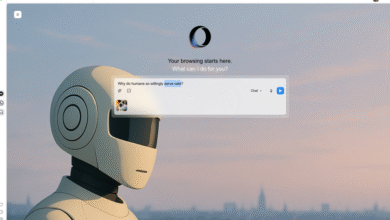Automattic CEO Admits Tumblr Is His ‘Biggest Failure’

▼ Summary
– Matt Mullenweg described Automattic’s Tumblr acquisition as his biggest failure but stated he hasn’t given up on it yet.
– The migration of Tumblr’s backend to WordPress infrastructure was halted due to high costs and lack of profitability, despite plans to make it more efficient.
– Automattic has implemented cost-cutting measures like layoffs and resource reallocation, but Tumblr remains financially unsustainable.
– Mullenweg discussed other company projects, including Playground for browser-based WordPress and expanding Beeper’s messaging app bridges.
– He addressed community issues by advocating for incentive systems to encourage contributions and transparency in response to disputes with WP Engine.
Automattic CEO Matt Mullenweg has openly described the company’s acquisition of Tumblr as his most significant professional disappointment, though he remains committed to turning the platform around. Speaking during a Town Hall at WordCamp Canada 2025, the WordPress co-founder shared candid insights into the challenges facing the popular blogging site. He revealed that despite initial ambitions, Tumblr continues to operate on a separate technical infrastructure from WordPress, a situation he had hoped to resolve through a large-scale migration.
That migration plan, however, was recently paused. The sheer scale of moving over half a billion blogs presents a monumental technical and financial challenge, especially since Tumblr is not currently profitable. The platform is being financially supported by revenue generated from other Automattic products. Cost-cutting measures, including layoffs and reallocating Tumblr’s resources to more lucrative areas of the business, have so far failed to make the platform self-sustaining.
Mullenweg was frank about the financial drain, stating, “I need to switch it over to WordPress, but it’s a big lift. We’re talking about more than 500 million blogs, and as a business, it costs far more to operate than it brings in.” He emphasized that making Tumblr sustainable has forced the company to prioritize other internal projects. Despite the setbacks, he affirmed, “It’s probably my biggest failure or missed opportunity right now, but we’re still working on it.”
A successful migration to WordPress’s backend would offer significant benefits. It would streamline maintenance, reduce operational costs, and better position Tumblr to integrate with the open social web, or fediverse. This interoperability was a key anticipated advantage of the planned technical overhaul.
Beyond Tumblr, Mullenweg’s discussion covered a wide range of Automattic’s other ventures. He highlighted developments within WordPress itself, along with projects like Jetpack and WooCommerce. He also mentioned Playground, an innovative tool that allows users to run WordPress directly in a web browser, and provided an update on Beeper, Automattic’s universal messaging app. Beeper is set to expand its capabilities by adding bridges to other messaging platforms, including KakaoTalk and services from various dating apps.
On the subject of artificial intelligence, Mullenweg was unequivocal, noting that the technology is an irreversible force and describing companies like OpenAI as “too big to fail.” Rather than resisting AI, he is exploring ways to manage its integration responsibly. One proposal involves tagging AI-generated images in the WordPress theme directory, allowing users to filter their searches accordingly instead of outright banning AI-created content.
The conversation also turned to community dynamics and the recent legal dispute with WP Engine, a WordPress hosting provider. Automattic has previously criticized the company for benefiting from the open-source ecosystem without contributing back. When asked about entities that exploit the community, Mullenweg carefully reframed the issue, suggesting the focus should be on “bad actions” rather than labeling people as “bad actors.”
He proposed that Automattic should develop better incentive systems to reward positive contributions, such as offering higher visibility in the WordPress directory. He also encouraged the community to make conscious financial decisions, advising them to “vote with your wallet” by not supporting businesses that engage in harmful practices.
Mullenweg pointed to the website WordPressEngineTracker.com, which monitors sites that have migrated away from a specific host. He shared that nearly 100,000 sites have switched providers, with another 74,000 going offline since the previous September. He condemned a court order that temporarily shut down the tracker, characterizing the legal action as an attempt to “muzzle free speech and transparency.”
(Source: TechCrunch)


![Audience watches a large screen displaying "OpenAI DevDay [2025]" at a conference.](https://digitrendz.blog/wp-content/uploads/2025/10/img-1192-390x220.jpg)


